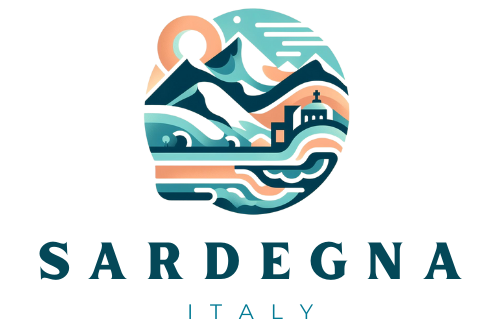Sardinian language preservation is a subject of great importance when it comes to safeguarding the cultural heritage and linguistic diversity of the Sardinian people. With its roots dating back thousands of years, the Sardinian language is an ancient and unique Romance language spoken primarily on the island of Sardinia, Italy. This language is considered to be one of the closest descendants of Latin, making it an invaluable linguistic treasure. Its preservation has far-reaching implications, not only for the people of Sardinia but also for linguists and researchers worldwide who study the development and evolution of languages.
One of the most significant impacts of preserving the Sardinian language is the preservation of a distinct cultural identity. The Sardinian language has been an integral part of the island’s cultural heritage for centuries, serving as a vessel for oral traditions, folklore, literature, and music. By maintaining and promoting the use of the Sardinian language, the Sardinian people can ensure the preservation of their cultural practices and traditional knowledge, fostering a strong sense of identity among its speakers.
In the upcoming sections of this article, we will delve deeper into the key takeaways of Sardinian language preservation. We will explore the various efforts and initiatives in place to protect and promote the use of the language, including educational programs, cultural events, and digital resources. Additionally, we will discuss the challenges faced in this endeavor, such as the impact of globalization and the need for intergenerational language transmission. By shedding light on these aspects, we hope to emphasize the importance of Sardinian language preservation and inspire action to ensure the continuity of this linguistic heritage for future generations. Stay tuned for an insightful exploration of the key takeaways surrounding Sardinian language preservation.
Key Takeaways
1. Sardinian, a Romance language spoken in the Italian island of Sardinia, is at risk of extinction due to cultural and linguistic assimilation.
2. Efforts to preserve the Sardinian language have been implemented through various initiatives, including promoting bilingual education, enhancing language documentation, and promoting language use in public spaces.
3. The Sardinian government has recognized the importance of cultural and linguistic diversity, leading to the development of language policies and funding for language preservation projects.
4. Indigenous organizations and grassroots movements have played a crucial role in advocating for Sardinian language preservation, raising awareness, and mobilizing communities.
5. Despite these efforts, challenges such as limited resources, an aging population of Sardinian speakers, and the dominance of Italian continue to pose significant threats to the survival of the Sardinian language.
History and Importance of Sardinian Language
The Sardinian language dates back over 2,500 years, making it one of the oldest Romance languages. It is the indigenous language spoken on the Italian island of Sardinia. Sardinian, with its unique dialects, plays a vital role in preserving the island’s cultural heritage and identity. For centuries, it has been a significant means of communication among the local population, helping them express their traditions, history, and emotions.
Challenges Faced by Sardinian Language
Despite its rich history, the Sardinian language is currently at risk of extinction. Several factors contribute to this decline:
- Language Dominance: The growing dominance of Italian as the official language of Italy has forced many Sardinian speakers to switch to Italian, leading to a decline in daily usage.
- Globalization: The impact of globalization has introduced other languages and cultures, diminishing the necessity and attractiveness of preserving local languages.
- Lack of Recognition: Sardinian has yet to receive official recognition and protection from the Italian government, making it susceptible to further marginalization.
Efforts for Sardinian Language Preservation
Despite the challenges, numerous initiatives are dedicated to preserving the Sardinian language:
- Language Education: Local schools and institutions aim to promote Sardinian language education, ensuring that new generations learn and appreciate their linguistic heritage.
- Media and Literature Promotion: Various local media outlets, television programs, and publishing houses actively produce content in Sardinian to increase its visibility and accessibility.
- Community Support: Local communities organize cultural events, festivals, and workshops to foster awareness and appreciation for the language, encouraging its use in daily life.
The Significance of Sardinian Language Preservation
The preservation of the Sardinian language is essential for multiple reasons:
- Cultural Heritage: Sardinian represents the unique cultural identity of the Sardinian people, preserving their traditions, folklore, and historical narratives.
- Communication and Expression: It is a means of communication that enables individuals to express themselves fully and connect on a deeper level, strengthening a sense of community.
- Linguistic Diversity: Language diversity enriches the global linguistic landscape, fostering multiculturalism, and promoting mutual respect and understanding.
How Can You Contribute to Sardinian Language Preservation?
- Learn Sardinian: Taking the initiative to learn the language not only increases your linguistic skills but also helps preserve and promote the Sardinian language.
- Support Local Initiatives: Show your support for local organizations and initiatives that work towards Sardinian language preservation by attending events, donating, or volunteering.
- Spread Awareness: Share information about the importance of Sardinian language preservation with others through social media, blogs, or personal conversations.
Frequently Asked Questions
1. What is Sardinian language preservation?
Sardinian language preservation refers to the efforts made to protect and maintain the Sardinian language, which is spoken in the region of Sardinia, Italy. The focus is on maintaining its speakers, promoting its use, and ensuring its cultural significance.
2. Why is Sardinian language preservation important?
Sardinian language preservation is essential as it ensures the survival of a unique linguistic heritage. Preserving the language helps maintain the cultural identity of the Sardinian community, strengthens social cohesion, and promotes diversity.
3. How is Sardinian language currently threatened?
The Sardinian language faces various threats, including the dominance of Italian as the official language of communication, the influence of media in other languages, and a decline in intergenerational transmission. These factors contribute to the gradual erosion of the language.
4. What measures can be taken to preserve the Sardinian language?
Efforts to preserve the Sardinian language can include promoting its use in schools, creating language learning programs, developing digital resources, organizing cultural events, and raising awareness about its importance within the community and beyond.
5. Are there any government initiatives supporting Sardinian language preservation?
Yes, various government and regional institutions in Sardinia have recognized the importance of language preservation. They have implemented policies, such as bilingual education programs and funding initiatives to promote the Sardinian language’s usage and visibility.
6. Can non-Sardinians contribute to language preservation?
Absolutely! Non-Sardinians can contribute to language preservation by learning and using the Sardinian language, supporting cultural initiatives, advocating for its recognition, and respecting the linguistic and cultural diversity of Sardinian communities.
7. Is Sardinian language preservation only important for Sardinians?
No, the preservation of the Sardinian language is relevant for everyone interested in language diversity, cultural heritage, and the preservation of traditional and local knowledge. It contributes to the richness of humanity’s linguistic tapestry.
8. Is Sardinian language preservation entirely about language learning?
While language learning plays a significant role, Sardinian language preservation encompasses various aspects beyond just learning, including research, documenting dialects, promoting Sardinian literature, and supporting cultural activities that celebrate the language.
9. What can individuals do to support Sardinian language preservation?
Individuals can support Sardinian language preservation by learning and using the language, encouraging its use within their communities and families, supporting cultural events and initiatives, and raising awareness about its importance.
10. How can technology contribute to Sardinian language preservation?
Technology can play a vital role in Sardinian language preservation by facilitating online language learning platforms, developing digital resources such as dictionaries and language apps, and utilizing social media for cultural exchange and language promotion.
Final Thoughts
Sardinian language preservation is an ongoing journey that requires collective efforts and dedication. By valuing linguistic diversity and recognizing the importance of preserving unique languages like Sardinian, we enrich our understanding of different cultures and foster a more inclusive society. It is our responsibility to support and celebrate the linguistic heritage of Sardinia, ensuring that future generations can experience the beauty and cultural significance of the Sardinian language.
Through language preservation initiatives, we can create opportunities for intergenerational language transmission, promote mutual respect between languages, and safeguard the Sardinian identity. Embracing the Sardinian language is not only an act of cultural preservation but also a testament to the human capacity for linguistic expression, resilience, and the power of diversity.






